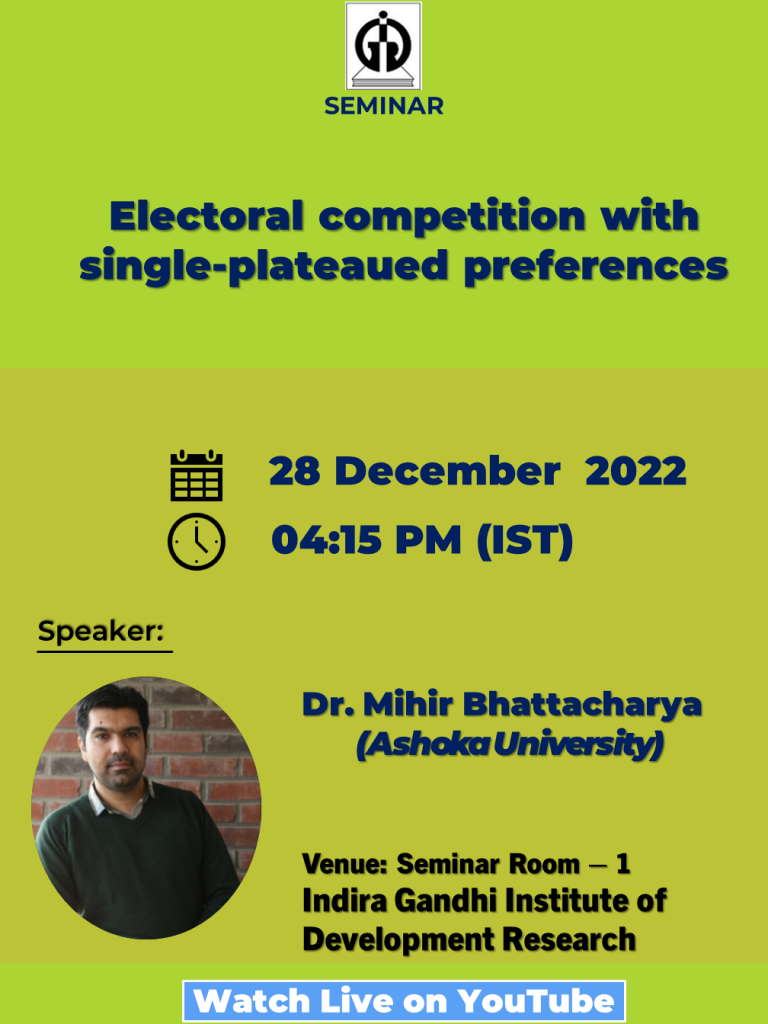Abstract:
We consider a model of electoral competition with single-plateaued preferences and characterize the winning set for (i) finite set of voters and (ii) a continuum of voters. We show that the winning set for discrete voters need not divide the set of ‘ideal points’ or mid points of voters into two equal halves.
For the continuum of voters with continuous distribution of end points we find that the winning set is a singleton set (not the median voter’s plateau) and the parties converge in equilibrium. We show that when the distribution of end points is a mass function, there are cases where the parties may again diverge since the winning set is an interval. We define convergence from the discrete voters case to the infinite voters case and show that the winning sets converge if and only if (i) there is positive mass at the ‘centre’ and (ii) number of voters around the ‘centre’ are proportional if the limit distributions are mass functions.
Watch Live on YouTube

